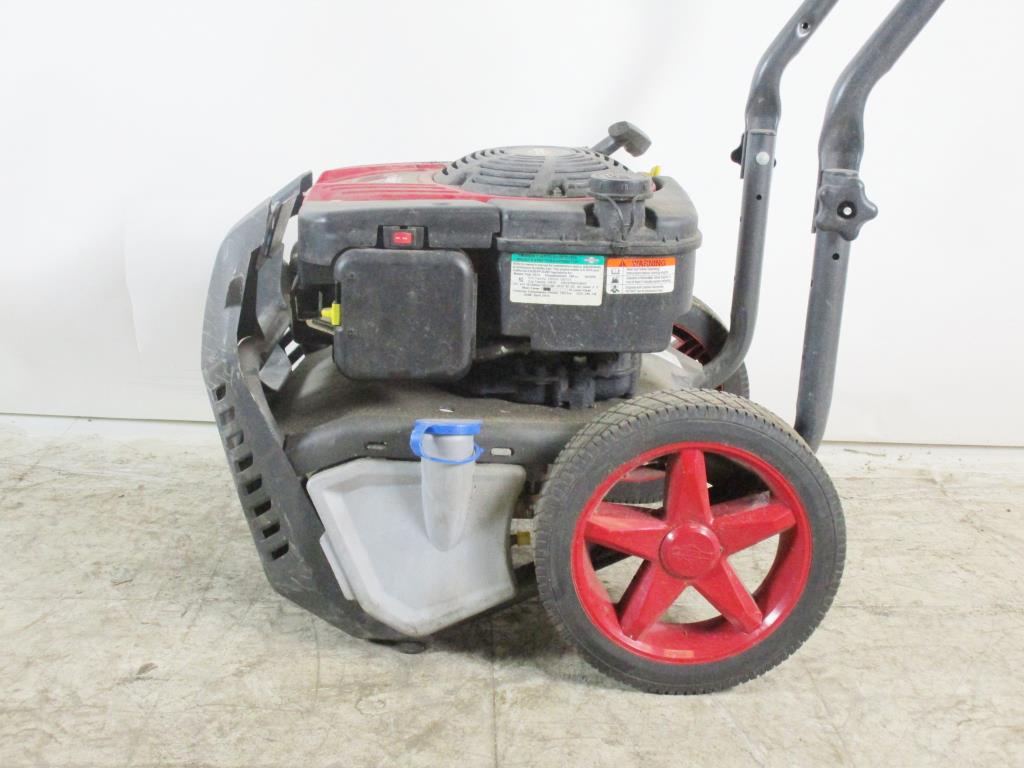Briggs And Stratton Power Washer Oil Type

Maintaining your power washer is crucial for ensuring its longevity and optimal performance. One of the most important aspects of this maintenance is choosing the correct oil. This article focuses specifically on the oil requirements for Briggs & Stratton power washers, providing a comprehensive guide for enthusiasts, owners, and professionals alike.
Understanding Briggs & Stratton Engine Oil Requirements
Briggs & Stratton engines are commonly found in a wide range of power washers, known for their reliability and relatively simple design. However, like any internal combustion engine, proper lubrication is vital. Using the wrong type of oil can lead to premature wear, decreased performance, and potentially catastrophic engine failure. Generally, Briggs & Stratton recommends using a high-quality detergent oil classified as SAE 30 for most operating conditions. However, it's essential to consult your specific power washer's owner's manual as recommendations can vary based on the engine model and operating environment.
Detergent oils are crucial because they help keep the engine clean by suspending contaminants and preventing sludge build-up. This is particularly important in small engines like those found in power washers, which tend to run hot and are often subjected to heavy use.
SAE 30 vs. Synthetic Oils: Which is Best?
While SAE 30 is the standard recommendation, synthetic oils offer some advantages, particularly in extreme temperature conditions. Synthetic oils like 5W-30 or 10W-30 provide better cold-start protection and maintain their viscosity at higher temperatures. This means they can offer superior lubrication and protection, especially if you frequently use your power washer in very cold or very hot climates.
Think of viscosity like the thickness of the oil. The "W" in 5W-30 stands for winter, indicating the oil's viscosity at cold temperatures. A lower number before the "W" signifies better flow in cold weather. The second number (30 in this case) represents the oil's viscosity at operating temperature. Synthetic oils are engineered to maintain a more stable viscosity across a wider temperature range compared to conventional SAE 30.
For example, if you live in an area with freezing winters, a 5W-30 synthetic oil will ensure that the engine is properly lubricated during cold starts, minimizing wear and tear. Conversely, if you operate your power washer in extremely hot weather, a synthetic oil with a higher viscosity rating (like 10W-40, if recommended by the manufacturer) may be beneficial.
Checking and Changing Your Power Washer Oil
Regular oil changes are paramount for maintaining the health of your Briggs & Stratton engine. The frequency of oil changes depends on the engine model and usage conditions, but a good rule of thumb is to change the oil every 25 to 50 hours of operation, or at least once a year, whichever comes first. Always refer to your owner's manual for the specific recommended interval.
Before each use, check the oil level using the dipstick. Ensure the oil level is within the specified range. Low oil levels can cause serious engine damage. When changing the oil, use the correct tools to remove the drain plug and catch the old oil in a suitable container. Dispose of used oil responsibly at a designated recycling center.
Always use a new oil filter during each oil change, if applicable. Some Briggs & Stratton engines utilize an oil filter, while others do not. Consult your owner's manual to determine if your engine requires an oil filter change during the oil change process.
Troubleshooting Oil-Related Problems
Several issues can arise due to improper oil maintenance. These include:
- Low Oil Pressure: Often indicated by a warning light (if equipped) or decreased engine performance. Check the oil level and add oil if needed. If the problem persists, it may indicate a more serious issue, such as a worn oil pump.
- Sludge Build-up: Using the wrong type of oil or neglecting oil changes can lead to sludge build-up, restricting oil flow and causing engine damage. Regular oil changes with a high-quality detergent oil are the best preventative measure.
- Oil Leaks: Inspect the engine for oil leaks around seals and gaskets. Replace damaged seals and gaskets as needed.
Conclusion
Choosing the correct oil type for your Briggs & Stratton power washer is essential for its longevity and optimal performance. Understanding the differences between conventional SAE 30 and synthetic oils, as well as adhering to a regular oil change schedule, will help ensure your power washer remains a reliable tool for years to come. Always consult your owner's manual for the specific oil recommendations for your engine model. By prioritizing proper lubrication, you can avoid costly repairs and keep your power washer running smoothly.
